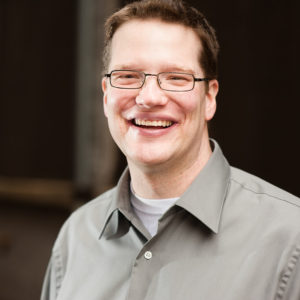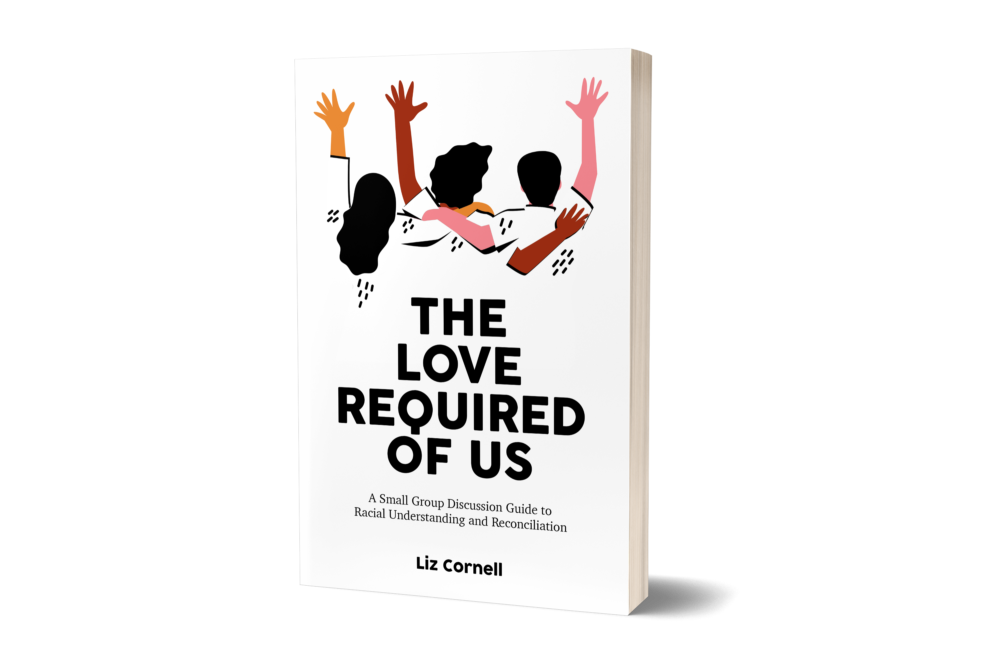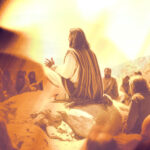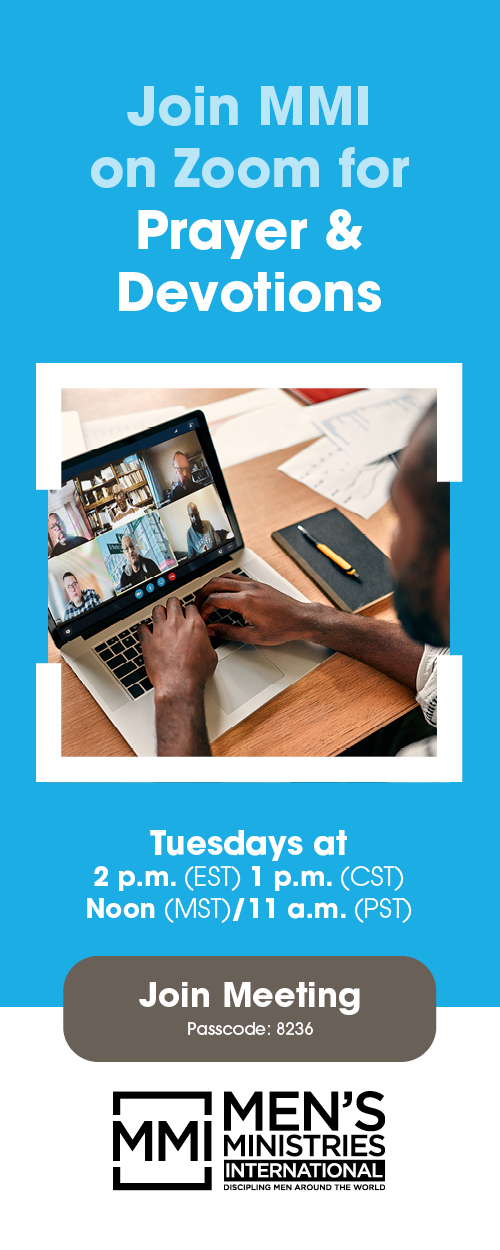
Jeff Finley
Light + Life Executive Editor
Jeff Finley is this magazine’s executive editor. He joined the Light+Life team in 2011 after a dozen years of reporting and editing for Sun-Times Media. He is a member of John Wesley Free Methodist Church where his wife, Jen, serves as the lead pastor.
by Jeff Finley
Where can local church leaders turn to help bring racial understanding and reconciliation to their congregations and communities? Numerous books about racism were promoted or published following the deaths of Ahmaud Arbery, Breonna Taylor and George Floyd last year. Most of these books, however, weren’t designed for church groups and aren’t likely to discuss the abolitionist roots of Free Methodism or recent diversity in denominational leadership.
A unique option, Light + Life Publishing’s “The Love Required of Us,” isn’t a hastily written reaction to recent events although it references the unrest of 2020. Free Methodist author Liz Cornell has been working for years to educate herself about issues of racial justice and then to develop curriculum that churches can use for discussion groups that lead to racial understanding and reconciliation within a Christian context.
“This book has been such a useful tool and helped me guide four other churches through what can be a divisive topic. I have been a member of a group and facilitated four of my own groups,” said Alexander James, the director of young adult ministries at Light & Life Christian Fellowship in Long Beach, California. “This book and a skilled guide can transform your church and prepare your church for an increasingly urban and multiethnic world. If you care about the future of your church, get this book.”
Cornell’s journey into greater racial understanding began in 2000 when the California teacher and her husband adopted two African American brothers.
“I had thought when we adopted the boys that we were going to experience racism a particular way. I thought we would run into bigoted people and we would hear racial slurs and that it would be very clear, but, at least in Southern California, it was not,” she said. “It was much more under the radar. It was harder to pinpoint.”
Cornell said that when her family would enter a store, people would be nice and helpful, but “things would not be quite right.” She noticed a pattern. Security guards followed them, and clerks would give them friendly but unusual attention.
In 2016, she attended a workshop led by John Williams — the director of the Center for Racial Reconciliation at Fellowship Church in Monrovia, California — that helped her understand how underlying biases (rather than overt prejudices) affected how people responded to her sons. Fellowship is an independent congregation, but founding Pastor Albert Tate’s Free Methodist ties include serving on the board of Azusa Pacific University. After a couple of workshops, she went on Fellowship’s civil rights tour that began with a visit to the Whitney Plantation near New Orleans and included sites in other Southern states.
“The Whitney Plantation is unique because it is an historical plantation, but its focus is on the experience of the enslaved African as opposed to Mount Vernon or Monticello,” said Cornell, who added she “just was undone” by the visit as she and other White members of the tour wondered, “How could they not have seen how evil this was? How could our ancestors not have seen this?” Another question soon followed: “What is it that we’re doing today that we just don’t see as evil?”
After returning home, she began praying and “reading everything I could get my hands on, and I went to trainings across the country.” She became a Fellowship facilitator and began giving presentations at other churches.
Kristy Hinds, then serving as a pastor at Light & Life Christian Fellowship and an assistant superintendent of the Free Methodist Church in Southern California, started a racial reconciliation group at Light & Life and asked Cornell to lead it. Cornell, who has more than 30 years of teaching experience, began writing curriculum as she led the group.
Susie Gamez received training from Cornell through Fellowship workshops and then led racial reconciliation cohorts with her at Light & Life over the course of two years.
“Racial reconciliation is important to me a) because I believe it is a biblically informed practice and expression of love for God and love for neighbor, and b) because as a woman of color, racial reconciliation is tied up with my own well-being,” said Gamez, who currently leads at Light & Life in community life and women’s ministries and also teaches and preaches regularly. “‘The Love Required of Us’ is a labor of love offered up by a sister who not only knows about the work of reconciliation, but lives it daily. It has been a joy and honor to serve alongside Liz in this work, and I am sure that many lives will be transformed as a result of working through this book.”
Impact Spreads
Cornell attended the 2018 Embrace All conference at West Morris Free Methodist Church in Indianapolis where she met Helen Kaufmann who asked if she could use Cornell’s unpublished curriculum at the Mattis Avenue FMC in Champaign, Illinois. Cornell said she initially hesitated but eventually shared it, and Kaufmann “became a big advocate” who encouraged her to get the curriculum published for other churches to use.
At the beginning of 2020, Cornell began teaching her curriculum at Cucamonga Christian Fellowship where Southern California Superintendent Fraser Venter serves as the lead pastor. Hospital Chaplain and Free Methodist Elder Bruce Whyte attends the church and became part of its first racial reconciliation group to use Cornell’s curriculum, and he is working to continue reconciliation efforts at his church while encouraging Free Methodists elsewhere to use the curriculum.
“Racial reconciliation is important to me because of my newborn baby girl, Hazel. I am a Black man that has had to navigate this world in some moments of fear. I do not want the same to happen to my child. It starts with healing my own wounds of oppression and marginalization. My daughter is biracial, and I would like for her to walk in the confidence of both her Black and White heritages in freedom and power. To do that, I need to model it myself by having these hard conversations with those that are beginning to learn racism and reconciliation,” said Whyte, who added that he is “a proud Black man who seeks reconciliation with God’s people as they are the imago Dei. ‘The Love Required of Us’ has allowed me the space to teach and to learn. This space creates disciples with each other in reconciliation that can move outside of race. It is challenging to rethink our beliefs and also a part of our identity as Free Methodists to move to formation and wholeness in God.”
Adrianna Ford also joined the racial reconciliation group at the church in Rancho Cucamonga, California.
“I was going through a really hard time personally working through some tense moments in my life where I felt I was in certain areas to prove places were diverse without having to hear diverse voices. It was hard feeling mute and on display at the same time. Liz’s classes started at my church around the same time,” Ford said. “When I tell you God’s timing is perfect, it is absolutely perfect. The class helped me put words to experiences that I had been going through my whole life but were getting heavier and heavier with each passing day. Since then, I’ve been a part of every class she has taught at my church.”
Ford helps facilitate and teach the classes.
“Each one teaches me something new and I enjoy hearing everyone’s experiences. I have never taken the same thing away from two different groups because everyone has dealt with racism in a completely unique way, and it truly shows how complex and deep-rooted this problem is,” said Ford who added “The Love Required of Us” is “a great start, an amazing stepping stone. It’s not the end of your journey to understanding racial reconciliation but the beginning.”
Last summer, Cornell watched the bishops interview several African American leaders in the Free Methodist Church – USA. “I was so impressed with how they spotlighted the honest responses,” she said.
With Kaufmann’s encouragement, Cornell sent her curriculum to the bishops as an additional resource for the denomination. Then FMCUSA Communications Director Brett Heintzman contacted her about Light + Life publishing the curriculum as a book. Cornell updated her curriculum to include recent events, but the book’s relevance doesn’t depend on the latest news cycle.
“Yes, it’s current, but it’s current because this is the state of our country. It has been the state of our country for a long time,” Cornell said.
The book offers eight sessions with topics such as “Ears to Hear,” “Eyes to See,” “Defining Racism and its History – Lament,” “The History of Racism in the Church – Confession,” “Racial Socialization and Internalization – Repentance,” “Advantage and Trauma – Forgiveness,” “Disparities in Outcomes Across All Systems – Justice and Mercy” and “Moving Forward – Reconciliation, Prayer, and Love.” Additional appendixes include a timeline of U.S. racism, a racial reconciliation ministry covenant, recommended resources for further study, and instructions for facilitators.
The publication in book form has Gamez hoping that Cornell’s curriculum reaches many more people.
“I would highly recommend ‘The Love Required of Us’ to churches and/or individuals who are serious about engaging in the work of racial reconciliation,” Gamez said. “It’s not a ‘casual, mindless read.’ It is an invitation to listen and learn, to be introspective, and be convicted by the Holy Spirit, and an invitation to confess, repent, lament and live into a lifestyle of reconciliation.”
Leading With Love
Cornell said Christians must engage racial issues, and she appreciates that love-driven justice is a core value in The Free Methodist Way.
“We have to do this through love, and it’s only the church that can do it,” said Cornell, who added that the secular world may seem to be ahead in addressing racial issues but its focus “is ultimately going to be a flipping of power structures, because it’s not about the love of God. It’s about ultimately the love of self.”
Ford also emphasized the importance of the church leading in racial reconciliation. She noted that Christians will meet in heaven someday, and we need to be able to reconcile here on earth and demonstrate love-driven justice.
“If we cannot love and fight for our neighbors, then we cannot fully love ourselves as part of God’s image. Racism and prejudice do not just hurt the image of minorities and how they view themselves,” said Ford who added that racism “also hurts the majority culture and how they view themselves as well. With a warped view of ourselves and each other, what could we really hope to accomplish?”
Visit freemethodistbooks.com to purchase “The Love Required of Us” as a book or an e-book/PDF.
+

Jeff Finley
Light + Life Executive Editor
Jeff Finley is this magazine’s executive editor. He joined the Light+Life team in 2011 after a dozen years of reporting and editing for Sun-Times Media. He is a member of John Wesley Free Methodist Church where his wife, Jen, serves as the lead pastor.










